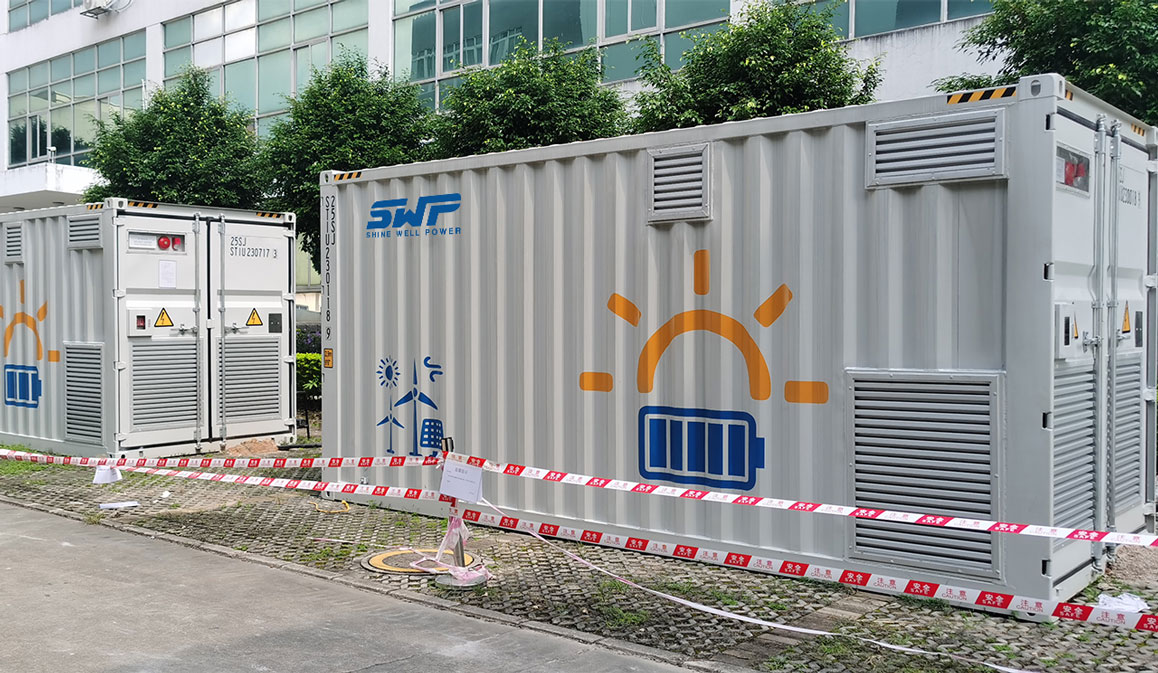Industrial and commercial energy storage systems
Author:Shine well PowerRelease Date:2023-03-31Number of visitors:356
Case Background: A large-scale manufacturing company
A large-scale manufacturing company faced challenges of high energy consumption and rising energy costs. To address these issues, the company decided to
introduce an energy storage system as part of its energy management strategy. The energy storage system consisted of high-capacity lithium-ion batteries and
an intelligent control system, enabling the storage and release of electricity to meet the company's energy demands. After many rounds of negotiations and
technical discussions, the swp technical team finally designed and manufactured the following industrial and commercial energy storage system according to
customer requirements, which saved the factory a lot of expenses and also contributed to carbon neutrality.

Solution:
Cost Optimization: The energy storage system allowed the company to store electricity during off-peak periods and utilize the stored energy during peak
periods to meet the demands of high-energy-consuming equipment. This energy dispatch strategy helped the company avoid high electricity prices, resulting
in cost savings.
Balanced Energy Consumption: Manufacturing processes often experience imbalances in energy consumption. Through the energy storage system, the company
could store excess electricity during periods of abundant energy supply and release stored energy during periods of supply scarcity to balance energy consumption.
This energy balancing capability improved energy utilization efficiency and reduced waste.
Grid Support through Energy Storage: The energy storage system also participated in grid support by providing flexible regulation capacity. During periods of high
grid load, the system could release stored energy to alleviate pressure, while during periods of low grid load, it could store excess electricity. This way, the energy
storage system contributed to maintaining grid stability.
Results:
Cost Savings: Through the dispatch strategy of the energy storage system, the manufacturing company successfully reduced energy costs. By storing electricity during
low-priced periods and utilizing the stored energy during high-priced periods, the company effectively lowered its energy procurement expenses.
Energy Optimization: The application of the energy storage system enabled the company to optimize energy consumption. By storing and releasing electricity, the
company could adapt to varying energy demands throughout different time periods, reducing energy waste and improving energy utilization efficiency.
Grid Support: The participation of the energy storage system enhanced grid stability. By providing flexible regulation capacity, the system helped balance grid load,
reducing peak-to-valley differences and improving grid reliability and sustainability.
Conclusion:
This case study demonstrates the significant role of energy storage systems in energy management and grid support in the commercial and industrial sectors. By
optimizing energy costs, improving energy utilization efficiency, and participating in grid support, energy storage systems provide sustainable solutions for businesses.
This case serves as a successful reference model for other commercial and industrial enterprises, encouraging them to adopt energy storage technologies, integrate
energy efficiency and renewable energy, and contribute to sustainable development.
Previous:no more
Next:no more





